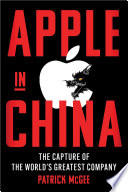
From "Apple in China"
🎧 Listen to Summary
Free 10-min PreviewChina's Crackdown on Labor Advocacy and Apple's Response
Key Insight
Beijing's brutal crackdown on the nascent labor movement in the mid-2010s significantly hindered Apple's ability to promote ethical labor practices and transparency in its supply chain. Under Xi Jinping's first term, police arrested peaceful protesters, raided NGOs, and passed laws 'restricting the work of foreign organizations and their local partners,' impacting over '7,000 NGOs' and making independent advocacy increasingly difficult or 'impossible.'
This suppression directly affected Apple's efforts for 'radical accountability,' as civil society groups that Jacky Haynes had sought to collaborate with faced 'arrest, office raids, and harassment.' The demise of organizations like Students and Scholars Against Corporate Misbehaviour (SACOM), which had exposed illegal student labor and forced overtime in Apple's supply chain, illustrated the growing control. SACOM disbanded in 2018 after 'thirteen years' of advocacy, with its leaders going into hiding.
While Apple's CEO Tim Cook publicly advocated for participation in difficult regions, stating 'you show up and you participate,' critics argued that Apple implicitly benefited from China's authoritarian turn. Without independent NGOs, trade unions, or a vibrant press, Apple faced 'no voice calling out Apple for working in a digital surveillance totalitarian environment,' removing a significant source of pressure for improved working conditions, a situation contrasting with other democracies.
📚 Continue Your Learning Journey — No Payment Required
Access the complete Apple in China summary with audio narration, key takeaways, and actionable insights from Patrick McGee.